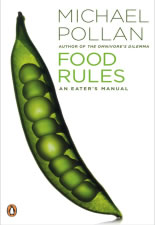May 25th, 2010 by CynthiaHainesMD in Better Health Network, Health Tips, Research
1 Comment »

“I never worry about action, but only about inaction.” — Winston Churchill
Winston Churchill was right: Experts are saying sedentary behavior is an epidemic, with the resulting health effects potentially devastating.
Lack of muscular activity is associated with higher incidence of obesity, cardiovascular disease, diabetes and cancer, as well as a heightened risk of death. And this is regardless of one’s level of structured physical exercise, according to the authors of an article published [recently] in the British Journal of Sports Medicine.
The team from Stockholm, Sweden, says that sedentary behavior has become synonymous with lack of exercise, but that this is inaccurate and misleading. Rather, sedentary behavior should be defined as whole body muscular inactivity. Read more »
May 24th, 2010 by RyanDuBosar in Better Health Network, Health Policy, News
No Comments »

Healthcare reform is forcing medical students to learn about the financial costs of the tests they order, as well as their clinical importance. Once a taboo topic, it’s being openly taught to students to prepare them for practice.
At Harvard, one physician in training duplicated television’s “The Price is Right” to keep his peers guessing at the costs of tests on a patient’s bill. Molly Cooke, FACP, a Regent of the College, encourages doctors to consider the value of the tests they order as they deliver care. (Kaiser Health News, New England Journal of Medicine)
The price isn’t right for electronic medical records. Even $44,000 in stimulus money isn’t enough to make doctors jump into using computers. Read more »
*This blog post was originally published at ACP Internist*
May 24th, 2010 by DrWes in Better Health Network, Health Policy, Opinion, True Stories
No Comments »

Doctors are all-familiar with marketing efforts to promote new drugs, but once the new drugs displace older drugs in the medical marketplace, who serves as advocates for the continued manufacturing of older FDA-approved drugs?
In a short answer: No one.
For those of us dealing in cardiac arrhythmia management, this presents difficult challenges for patient care if people are unable to take the newer drugs due to side effects. These patients no longer have a fall-back option to turn to for medical therapy when the older drugs have become extinct on the marketplace. Read more »
*This blog post was originally published at Dr. Wes*
May 23rd, 2010 by Gwenn Schurgin O'Keeffe, M.D. in Better Health Network, Health Tips, Opinion, True Stories
No Comments »

Spring and standardized school testing become synonymous in many areas of the country for many public school students, including for my own children attending schools in Massachusetts.
As this annual rite of passage rolls around, I’m reminded of how important it is to help our kids remember that they’re so much more than the sum of their grades, test scores, and project results. Think back on your childhood: What do you remember? Is it the grades, the teachers, the homework amount? Did you have standardized tests and, if so, do you remember the results?
I recall blips of taking tests and filling out scantron sheets for all sorts of tests throughout my educational life. I recall being in class when graded papers, projects and tests were handed back to us. But the moments I recall the most were the times I overcame a challenge or a hurdle that seemed insurmountable at the time — and grew from it in unimaginable ways. Read more »
*This blog post was originally published at Dr. Gwenn Is In*
May 23rd, 2010 by Joseph Scherger, M.D. in Better Health Network, Book Reviews, Health Tips, Humor, Opinion
No Comments »

 Michael Pollan has become one of our most important writers about human nutrition. His book, The Omnivore’s Dilemma (2006), spelled out why the almost eight billion humans on this planet had better balance what we eat — for our own health and the health of the planet.
Michael Pollan has become one of our most important writers about human nutrition. His book, The Omnivore’s Dilemma (2006), spelled out why the almost eight billion humans on this planet had better balance what we eat — for our own health and the health of the planet.
He published a small book in 2009 (Penguin Books) called Food Rules: An Eater’s Manual. His rules are around seven words in three brief statements: “Eat Food, Not Too Much, Mostly Plants.” How simple and wise is that?
These three statements make up the three parts of this small book, with lots of practical “rules.” Read more »
*This blog post was originally published at eDocAmerica*







 Michael Pollan has become one of our most important writers about human nutrition. His book, The Omnivore’s Dilemma (2006), spelled out why the almost eight billion humans on this planet had better balance what we eat — for our own health and the health of the planet.
Michael Pollan has become one of our most important writers about human nutrition. His book, The Omnivore’s Dilemma (2006), spelled out why the almost eight billion humans on this planet had better balance what we eat — for our own health and the health of the planet.







